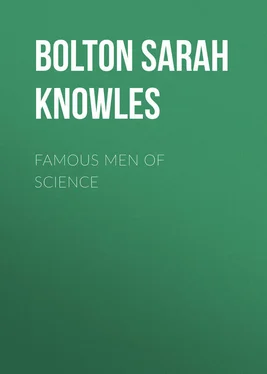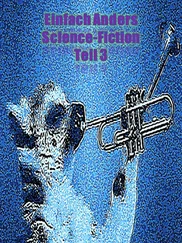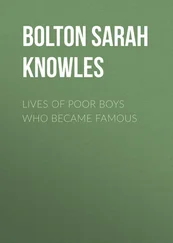Sarah Bolton - Famous Men of Science
Здесь есть возможность читать онлайн «Sarah Bolton - Famous Men of Science» — ознакомительный отрывок электронной книги совершенно бесплатно, а после прочтения отрывка купить полную версию. В некоторых случаях можно слушать аудио, скачать через торрент в формате fb2 и присутствует краткое содержание. ISBN: , Жанр: foreign_language, foreign_antique, foreign_prose, Биографии и Мемуары, на английском языке. Описание произведения, (предисловие) а так же отзывы посетителей доступны на портале библиотеки ЛибКат.
- Название:Famous Men of Science
- Автор:
- Жанр:
- Год:неизвестен
- ISBN:http://www.gutenberg.org/ebooks/35489
- Рейтинг книги:3 / 5. Голосов: 1
-
Избранное:Добавить в избранное
- Отзывы:
-
Ваша оценка:
- 60
- 1
- 2
- 3
- 4
- 5
Famous Men of Science: краткое содержание, описание и аннотация
Предлагаем к чтению аннотацию, описание, краткое содержание или предисловие (зависит от того, что написал сам автор книги «Famous Men of Science»). Если вы не нашли необходимую информацию о книге — напишите в комментариях, мы постараемся отыскать её.
Famous Men of Science — читать онлайн ознакомительный отрывок
Ниже представлен текст книги, разбитый по страницам. Система сохранения места последней прочитанной страницы, позволяет с удобством читать онлайн бесплатно книгу «Famous Men of Science», без необходимости каждый раз заново искать на чём Вы остановились. Поставьте закладку, и сможете в любой момент перейти на страницу, на которой закончили чтение.
Интервал:
Закладка:
"The recollection of these happy scenes confirms me in the belief, that had my brother William not then been interrupted in his philosophical pursuits, we should have had much earlier proofs of his inventive genius. My father was a great admirer of astronomy, and had some knowledge of that science; for I remember his taking me, on a clear frosty night, into the street, to make me acquainted with several of the most beautiful constellations, after we had been gazing at a comet which was then visible. And I well remember with what delight he used to assist my brother William in his various contrivances in the pursuit of his philosophical studies, among which was a neatly turned four-inch globe, upon which the equator and ecliptic were engraved by my brother."
When William was seventeen, the guards went to England for a year, and on their return home he brought one precious memento of the country, Locke "On the Human Understanding." Such a boy would not remain in the foot guards forever. He was delicate in health, so that his parents removed him from the army.
At nineteen, he determined to try his fortune in England. He said good-by to the culture-loving and warm-hearted father, to the poor mother who knew "no other wants than good linen and clothing," and started out to make his way in the world. For three years nothing is known of him, save that he passed through many hardships. He played in military bands whenever and wherever he could find a situation, or at concerts, and led probably a cramped and obscure life.
There was little prospect then that he would become, as Prof. Edward S. Holden says in his admirable life, "the greatest of practical astronomers, and one of the world's most profound philosophers." What the poor German youth thought and felt in those years of trial, we do not know. He had one resource in his loneliness, the reading of useful books.
After about three years, a fortuitous circumstance occurred. It proved "fortuitous" only because young Herschel had studied music faithfully, and had made himself ready to fill a fine position, if, poor and without influence, such a position could be obtained.
As Dr. Miller, a noted organist, "was dining at Pontefract with the officers of the Durham militia, one of them, knowing his love of music, told him they had a young German in their band, as a performer on the oboe, who was also an excellent performer on the violin. The officer added that if Miller would come into another room, this German should entertain him with a solo. The invitation was gladly accepted, and Miller heard a solo of Giardini's executed in a manner that surprised him.
"He afterwards took an opportunity of having some private conversation with the young musician, and asked him whether he had engaged himself for any long period to the Durham militia. The answer was, 'Only from month to month.'
"'Leave them, then,' said the organist, 'and come and live with me. I am a single man, and think we shall be happy together; and doubtless your merit will soon entitle you to a more eligible situation.'
"The offer was accepted as frankly as it was made, and the reader may imagine with what satisfaction Dr. Miller must have remembered this act of generous feeling, when he heard that this young German was Herschel, the astronomer. 'My humble mansion,' says Miller, 'consisted at that time but of two rooms. However, poor as I was, my cottage contained a library of well chosen books.'
"He took an early opportunity of introducing his new friend at Mr. Cropley's concerts. The first violin was resigned to him, 'and never,' says the organist, 'had I heard the concertos of Corelli, Geminiani, and Avison, or the overtures of Handel, performed more chastely, or more according to the original intention of the composers, than by Mr. Herschel.'
"'I soon lost my companion; his fame was presently spread abroad; he had the offer of pupils, and was solicited to lead the public concerts both at Wakefield and Halifax. A new organ for the parish church of Halifax was built about this time, and Herschel was one of the seven candidates for the organist's place. They drew lots how they were to perform in succession. Herschel drew the third; the second fell to Dr. Wainwright, of Manchester, whose finger was so rapid that old Snetzler, the organ-builder, ran about the church exclaiming, " He run over te keys like one cat; he will not give my piphes room for to shpeak ."
"'During Mr. Wainwright's performance,' says Miller, 'I was standing in the middle aisle with Herschel. "What chance have you," said I, "to follow this man?" He replied, "I don't know, I am sure fingers will not do." On which he ascended the organ loft, and produced from the organ so uncommon a fulness, such a volume of slow, solemn harmony, that I could by no means account for the effect. After this short extempore effusion, he finished with the Old Hundredth psalm-tune, which he played better than his opponent.
"'" Ay, ay, " cried old Snetzler, " tish is very goot, very goot inteet. I will hef tish man, for he gives my piphes room for to shpeak. " Having afterwards asked Mr. Herschel by what means, in the beginning of his performance, he produced so uncommon an effect, he replied, "I told you fingers would not do!" and, producing two pieces of lead from his waistcoat pocket, "One of these," said he, "I placed on the lowest key of the organ, and the other upon the octave above; thus, by accommodating the harmony, I produced the effect of four hands, instead of two."'"
Herschel was the successful candidate among the seven. He was now twenty-seven years old. Only once do we learn of his going home to Germany, and that in the year previous. Of this visit, Caroline, now grown to fourteen, says, "Of the joys and pleasures which all felt at this long-wished-for meeting with my, let me say my dearest brother, but a small portion could fall to my share; for with my constant attendance at church and school, besides the time I was employed in doing the drudgery of the scullery, it was but seldom I could make one in the group when the family were assembled together.
"In the first week, some of the orchestra were invited to a concert, at which some of my brother William's compositions – overtures, etc. – and some of my eldest brother, Jacob's, were performed, to the great delight of my dear father, who hoped and expected that they would be turned to some profit by publishing them, but there was no printer who bid high enough."
After a year at Halifax, Herschel obtained a position as organist at the Octagon Chapel in Bath, a fashionable city of England. This was another and higher step on the road to fame. He now gave nearly forty lessons a week to pupils. He composed music, and wrote anthems, chants, and psalm-tunes for the cathedral choir where he played. He became so popular from his real ability, coupled with pleasing manners, that he was occupied in teaching from fourteen to sixteen hours daily.
But he did more than this. As his hopes brightened, he determined to devote every minute to the pursuit of knowledge, in which he found his greatest happiness. He studied Greek and Italian. He would unbend his mind , after he retired, with Maclaurin's "Fluxions," or Robert Smith's "Complete System of Optics," and Lalande's Astronomy.
What if he had devoted this time to ease or amusement! Would he have become learned or distinguished? Every young man and woman is obliged to decide the matter for himself and herself. We cannot idle away life and be great.
In 1767, the fond father, Isaac, died of paralysis. Caroline, who loved him tenderly, was desolate. He had taught her the violin when the prosaic mother "was either in good humor, or out of the way." It is quite possible that music, like inventions, did not bring an adequate support for ten children, and that the practical mother wished her daughter to learn something whereby she could earn a living. She thereupon sent her two or three months to a seamstress to be taught to make household linen. After a time a delightful proposition came from the organist at Bath. He would take her to England, and see if she "could not become a useful singer for his winter concerts and oratorios." If she did not succeed, after two years, he would carry her back to Germany.
Читать дальшеИнтервал:
Закладка:
Похожие книги на «Famous Men of Science»
Представляем Вашему вниманию похожие книги на «Famous Men of Science» списком для выбора. Мы отобрали схожую по названию и смыслу литературу в надежде предоставить читателям больше вариантов отыскать новые, интересные, ещё непрочитанные произведения.
Обсуждение, отзывы о книге «Famous Men of Science» и просто собственные мнения читателей. Оставьте ваши комментарии, напишите, что Вы думаете о произведении, его смысле или главных героях. Укажите что конкретно понравилось, а что нет, и почему Вы так считаете.












